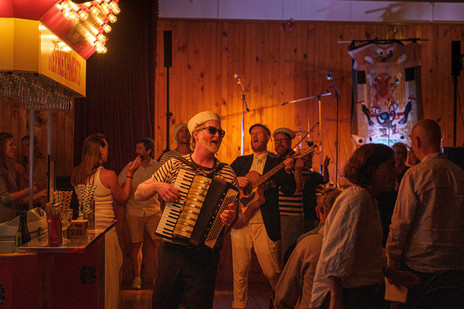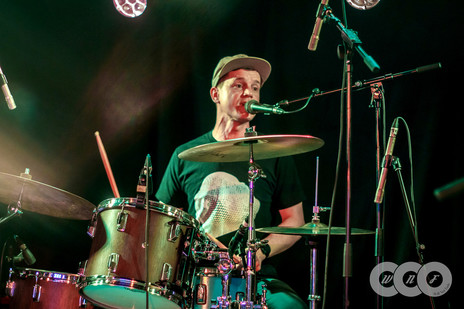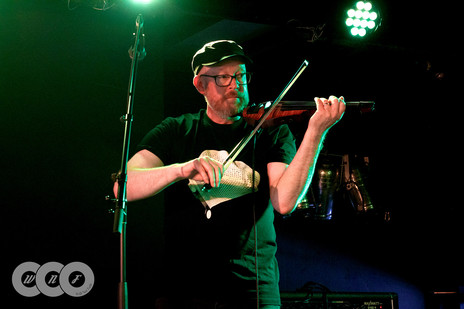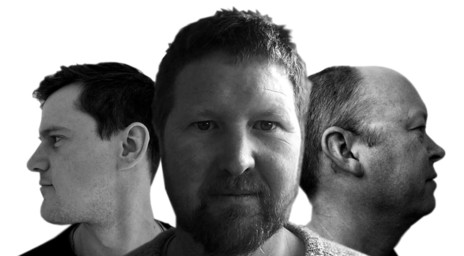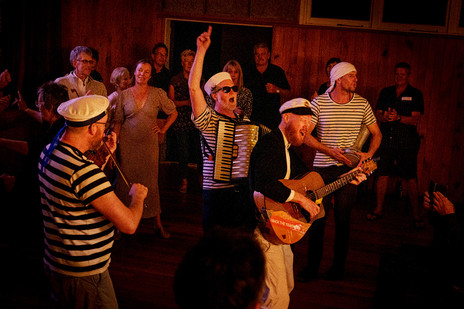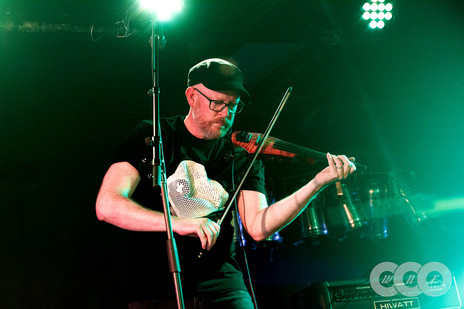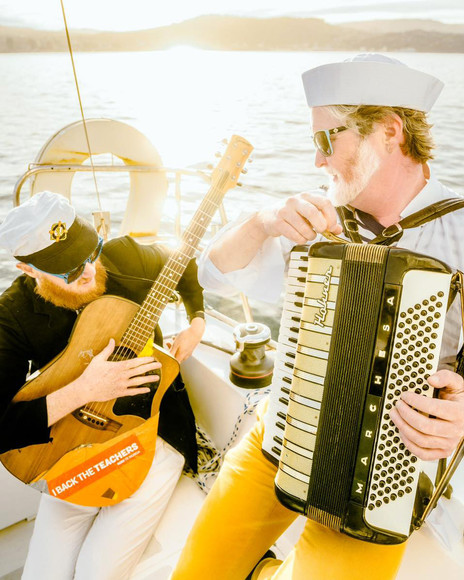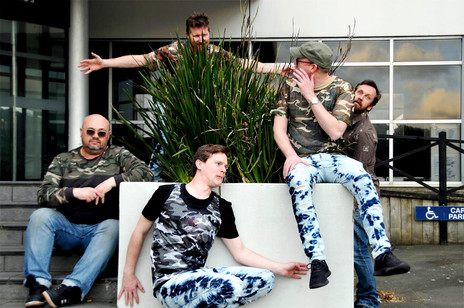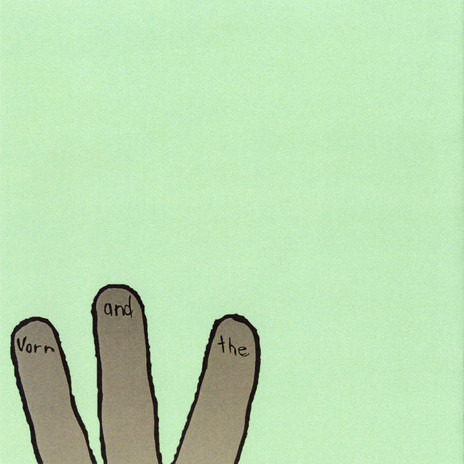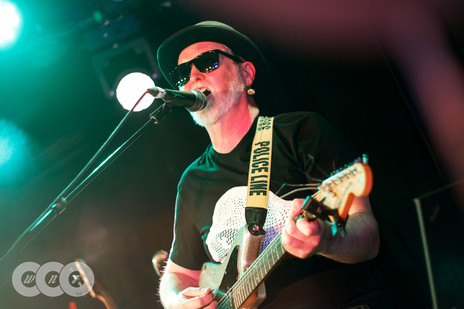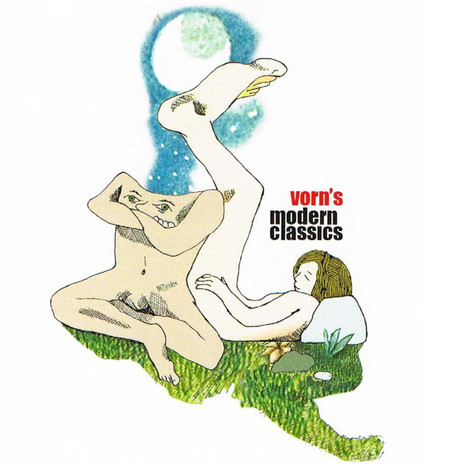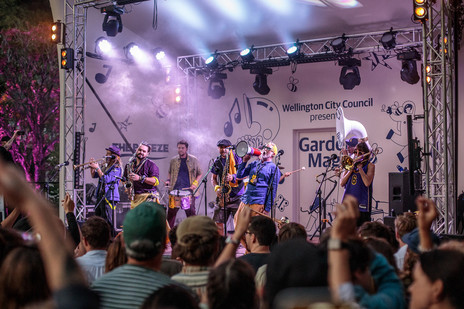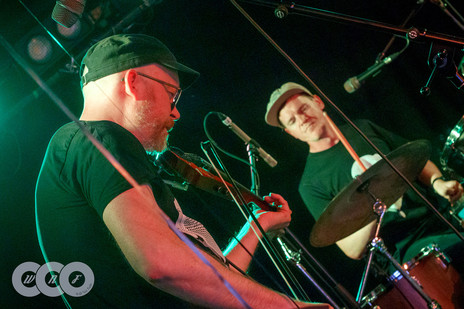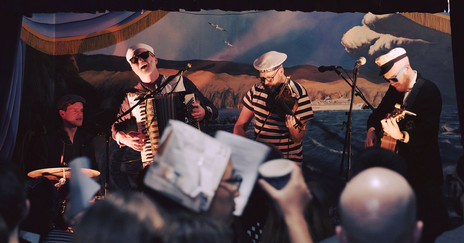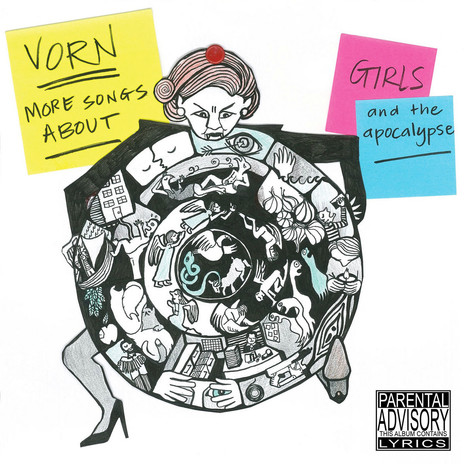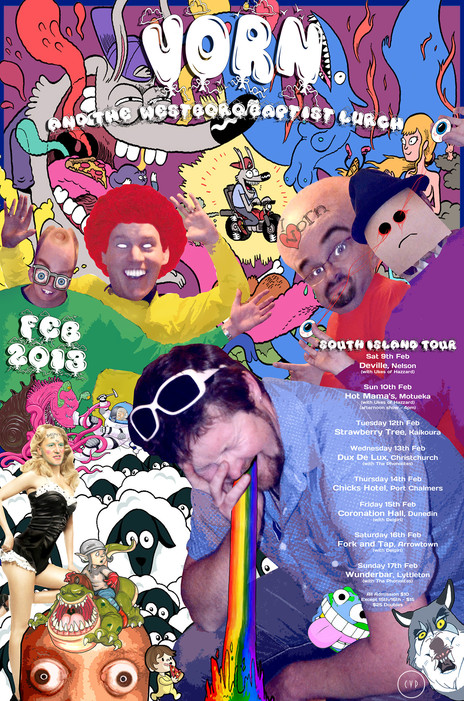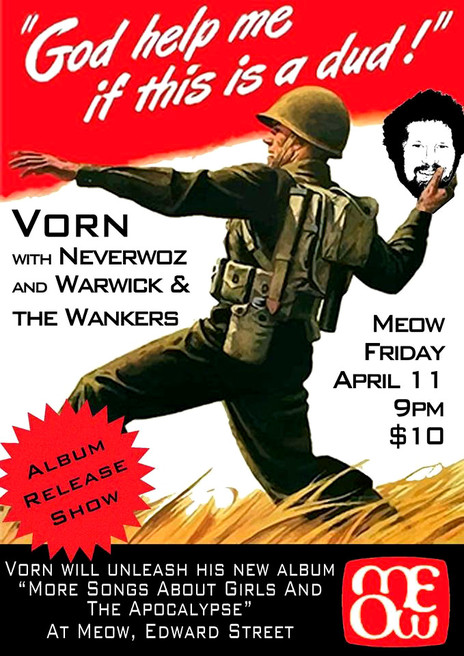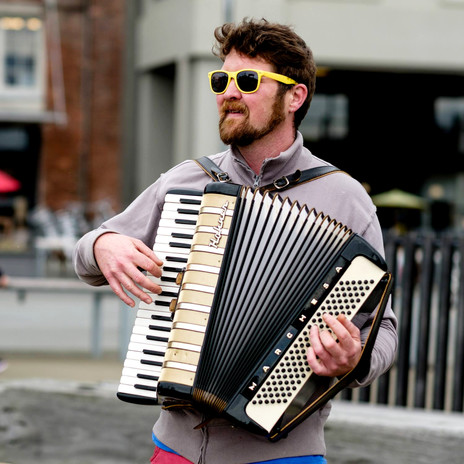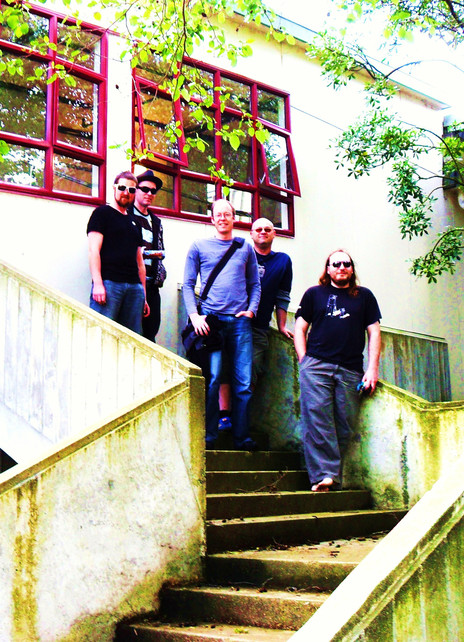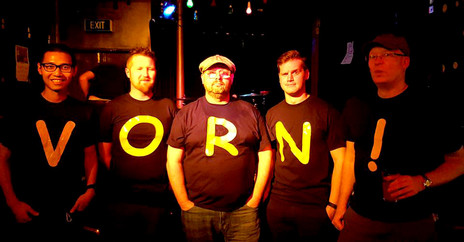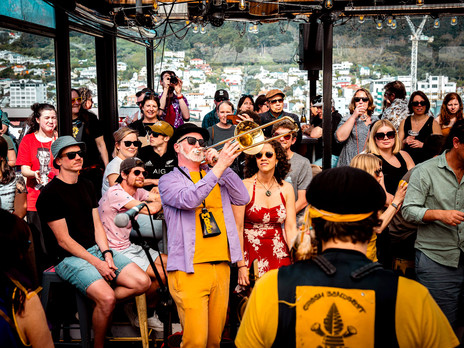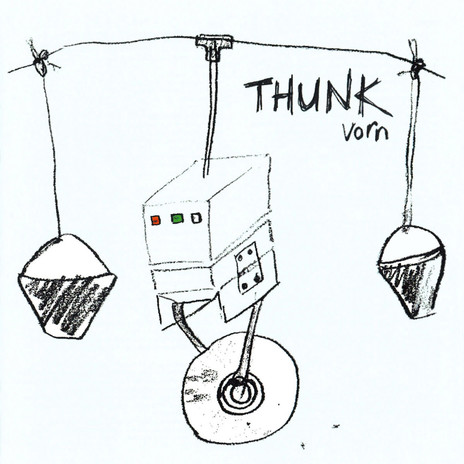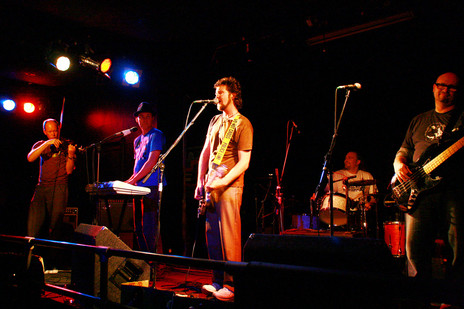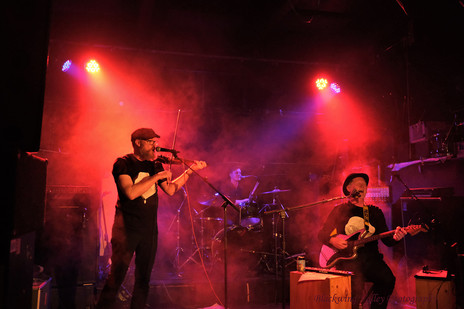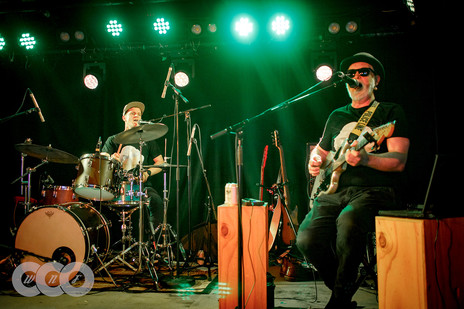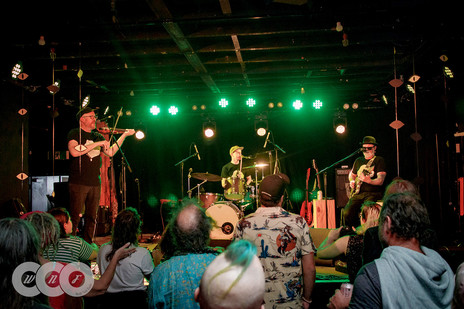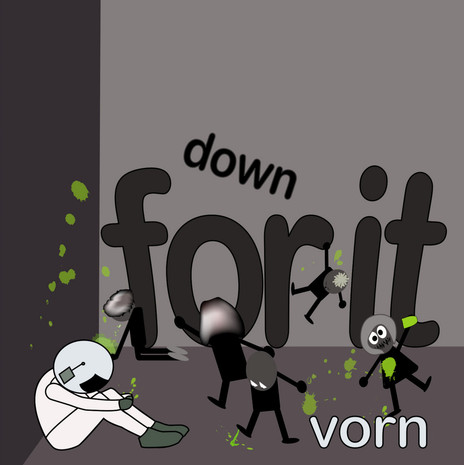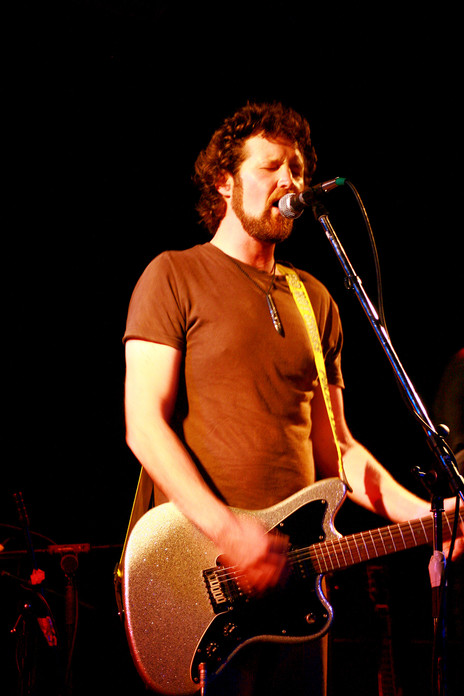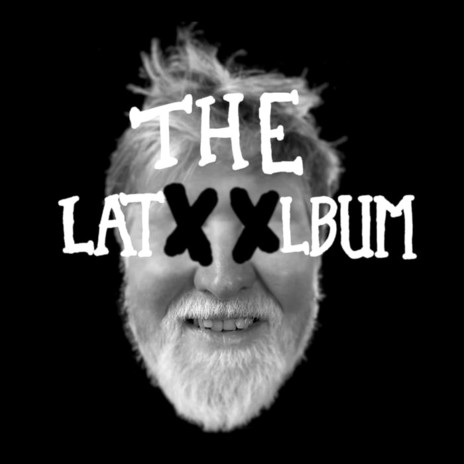2024 sees the much-travelled Colgan celebrate a quarter of a century of releasing music and performing live under a variety of guises. Not the least of which is Vorn itself, which closed out 2023 with the release of its ninth album, The Late Album, so titled because it was once destined to be exactly that – a posthumous release after Colgan was diagnosed with stage 4 melanoma in late 2018. But Colgan responded well to treatment, and here we are, nearly six years on. “For the record,” he says, “we did think I was going to die! … you can ask the doctor.”
It seems fitting that I sit down to talk to Colgan about his various musical projects at Newtown venue Moon. We chat over a sporadic din while the soundcheck for an unknown band takes place inside the relatively confined space that passes muster as one of Wellington’s best and last surviving indie music hangouts. We have an awful lot of ground to cover.
Colgan was raised in rural Taranaki as “a lonely nerd” inspired by grunge and the Violent Femmes
One of the first things I learn is that Colgan was raised in rural Taranaki as “a lonely nerd” inspired by grunge and the Violent Femmes. “The Femmes were the only non-grunge band that really interested me. They had that element of humour added to the desperation. Plus, there were no other nerds where I came from, so the only creative outlet anyone around me had was punching me, basically.”
Resilient and fleet of foot, Colgan managed to escape to Hamilton, attending university, and commencing an incredibly diverse musical journey with a band called The Living Room.
“We recorded a couple of EPs that are probably lost now. When that band broke up I was just out of university, just hanging around in Hamilton, so I took all the spare songs that we hadn’t done and recorded them on a borrowed four-track.”
Those recordings formed the basis of the first Vorn album – essentially a solo effort – called Normal the Normal Normal. Colgan submitted several CDs for review, with NZ Musician magazine’s Chris Knox, a man who knows a thing or two about DIY recordings, raving “… a four-track recording of unfettered originality and tuneful invention. From big rock to wimpy ballad, this bedroom auteur always adds his perspective to the genre he chooses to plunder and deform … get him while he’s hot doggy, cos hot he sure is.”
The next year was spent “hitchhiking and busking, mostly living in tents and on friends’ floors and I didn’t have the means to record. I went over to Korea to teach English, which meant I suddenly had some money - so I bought a four-track. On reflection I would have been better off buying a digital recorder but I still had romantic ideas about four-track recordings.
“I bought the shittiest mic in this village in Korea I was living in, and a terrible ‘cardboard box copy’ of a Casio keyboard. It was awful but it had the advantage that you could hit a key and it would play a kick drum, then hit another and it would play a snare drum, so you could play your own beats … and that was the second album, Not Quite As Good, recorded in my flat in Korea between English classes.
“Then I spent a year in England, hating it, working as a chef over there. I wrote nothing, and I recorded nothing. I did a bit of travel for a couple of months, returned to New Zealand in late 2002 and moved to Wellington in 2003.”
The move to Wellington was the catalyst for a new musical project, Dangerpin, which ultimately led to a more expansive version of Vorn.
“Dangerpin was a project with an amazing songwriter, Christopher Agar. We had a co-writing project but because we were good friends, and in our 20s, we just had one of those terrible working relationships. Always fighting about everything and it really put the friendship to the test. Although I really love his stuff it was better if we didn’t work together. It was through Dangerpin that I met (drummer) Declan Bailey. Christopher went on to do other stuff and I pinched Declan for Vorn.”
Bailey would play drums on the next four Vorn albums, all released on Andrew Maitai’s highly supportive Powertool Records label and spread across a productive five year period – Thunk (2006), Vorn And The (2008), Modern Classics (2009), and Down For It (2011).
“When I made the Thunk album I didn’t have a band to play with, and I was just mucking around trying to get people on board for a live band. But I made it and sent it out to a whole bunch of record labels. The only two that answered were She’ll Be Right Records, which was New Zealand’s first and only “native accent” record label, and Powertool Records.”
Bailey’s (then) flatmate, keyboardist Adrian McKenzie, turns up (as Dr Strangelove) on Vorn And The, by which time bass player Simon Bayliss had also joined the band. When Modern Classics came out a year later, violinist Thomas Liggett was onboard, to help turn what was already a borderless genre-less unholy mess of originality into something even more leftfield and chaotic.
Vorn had a commitment to playing smaller gigs in the bars and halls out the back of beyond
Having organically evolved into a five-piece, and with the ongoing support of Powertool Records, Vorn became increasingly prominent as a live act. Something that came with a commitment to playing smaller gigs in the public bars and community halls of out the back of beyond, with some of the band’s more memorable performances taking place in far-flung locations such as Greymouth and the back blocks of rural Taranaki.
Despite this enhanced visibility, album number six, Down For It, which contained instant-Vorn classics like ‘The Family Planning Song’ and the multi-part ‘You Don’t Have To Hate Yourself To Sleep With Me (But It Helps)’ followed a by-now familiar pattern: it was loved by fans and critics alike, but gained little commercial traction.
Reviewing the album on Elsewhere, Graham Reid noted “in an alternative universe Frank Zappa would be the head of the music school, radio would refuse to play anything by someone who did a photoshoot before writing a song, and Vorn’s bent pop would be as big and as popular as Crowded House’s.”
When More Songs About Girls and The Apocalypse followed in 2014, an album that saw current drummer Nick Brown replace Bailey, Vorn added an additional format. “We did a vinyl single (‘Flint and Tinder’, a double A-side with ‘Repentant Song’) and the idea was if that went well we’d maybe start going through the back catalogue and doing vinyl for everything but it didn’t go well. We’ve still got 50 copies of that. In the end, financially, it was a failed experiment. It’s certainly true that people keep on buying vinyl – it’s just that getting the process started is prohibitively expensive.”
If the vinyl experiment was a flop, it didn’t stop the band going for something completely different again for The Winter Sessions (2017), essentially album number eight, which was released in video-clip-only format as a collection of songs performed live and in one take.
“What I wanted people to do was to listen to the whole thing but Spotify (and streaming) is made for shuffling so the format of that album is just that video. We went back and forth about trying to do a vinyl release but it was just (lack of) money as the reason not to. There was no temptation to do a CD and we still go back and forth about maybe putting it on Bandcamp.”
Being diagnosed with advanced skin cancer in late 2018, with the initial prognosis giving Colgan six months to live, “derailed things quite badly” (he says, mastering the art of understatement).
“I was getting medicated and I was losing energy, but I had tons of other stuff to do, and I was still working that whole time. Between being sick and feeling the pressure of doing something really good, it was actually slowing me down.
“We had three or four songs for (what was to become) The Late Album, and normally I find that if I get to four songs, suddenly I’ve got ten songs because a little bit of the pressure comes off and the rest of the album just sort of falls out. That’s usually the way it goes. But then I got this thing in my head that ‘I’m going to die, this is the last one, it has to be good’, and that was absolutely paralysing. Everything you sit down to try and write, you think, is this my last word on the subject?
“Immunotherapy worked. I’m in remission. Stage 4 cancer means it’s all over your body – for example, I had a tumor in my brain which they can’t detect now. At the moment oncology are done with me. Last year I had resurgence in the bone in my sternum, so they cut that bone out completely and replaced it with a plastic 3D-print of my sternum.”
After Colgan’s bout with cancer, ‘The Late Album’ was released in 2023 to celebration and joy
And naturally, The Late Album was finally released in late 2023, to much celebration and joy for those of us following Colgan’s musical journey. A journey which includes multiple irregular side-projects or one-offs, each one offering something different.
“It’s funny, the Vorn stuff is what I think of as my output, my life’s work, but then I like working with other people and following other people’s ideas. When I started, and was recording by myself, I had to learn bass because I couldn’t find someone to play bass for me, and then drums. So I learned all of these skills and found myself in a position when if another musician needed a ‘something’, I could play that ‘something’. So I turned into a sort-of indie session musician. Because a real session musician would just fuck up your indie song. If you’re promiscuous enough you could do ten or twelve things with other people and a couple of them would stick.”
We cover off Gold Medal Famous, the electropop vehicle which has offered us gems like ‘Hideous Relationship’ (featuring Tony Veitch), ‘John Key is a Dick’ (in 14 different genres), and ‘John Key is Still a Dick’:
“Chris Wilson is the main vocalist and the source of most of the political leanings. I try to do the politics by stealth in my own writing, but Chris is a bit more direct. He’s such an ideas fountain. He can’t play anything but he’s one of the greatest musicians I’ve ever worked with. It sort of took on a techno flavor over time, because the quickest thing you can do on a laptop is techno. It’s still chugging on – we’ve got three new songs, enough for an EP later this year.”
Then there are Colgan’s collaborations with fellow Wellingtonian Lake South – the accordion “jazz” outfit Gypsy Hendrix (yes, Hendrix covers on the accordion) “because we needed the cash”, and more notably, The Wellington Sea Shanty Society.
I ask specifically about ‘Wellerman’, the local shanty that went viral on Tik Tok a few years ago on the back of a take by Scottish artist Nathan Evans. “Wellerman was a supply ship that supplied the whaling ships. The thing about that song was we had never heard it before we started doing shanties but it became a banger, after Lake picked it up [from NZ Folk Songs]. When we went over to France in 2015, the French audiences started going off. We’ve got something like two million plays on Spotify, just because of people looking up [the Evans version] and finding us by accident.”
Finally we talk about the strong element of humour that runs through all of the musical projects Colgan is involved with. I’m intrigued about where Colgan thinks Vorn in particular fits in. About how he manages to integrate amusing and relatable lyrics into songs which might otherwise veer off into the realm of pristine Beatles-esque pop music.
“It’s born from busking. When I was younger I wrote tons of teen-depressant music, but angst is a bummer and very one dimensional – you can write a sad song about being sad, but it’s very flat artistically. But if you write a hilarious song about being sad it’s already crunchy and interesting. If it made me laugh, I’d assume that some other sick fuck would laugh as well.”
And what’s next for Vorn?
“The band is working on a new album, hopefully with Charlie Davenport on bass. A concept album, a rock opera. It’s Nick’s ‘rock folly’ but it’s mostly stuff that I’ve secretly wanted to do myself for a long time. And I’ve now got enough perverts around me to enable me, nobody is holding back my worst impulses any longer.”
